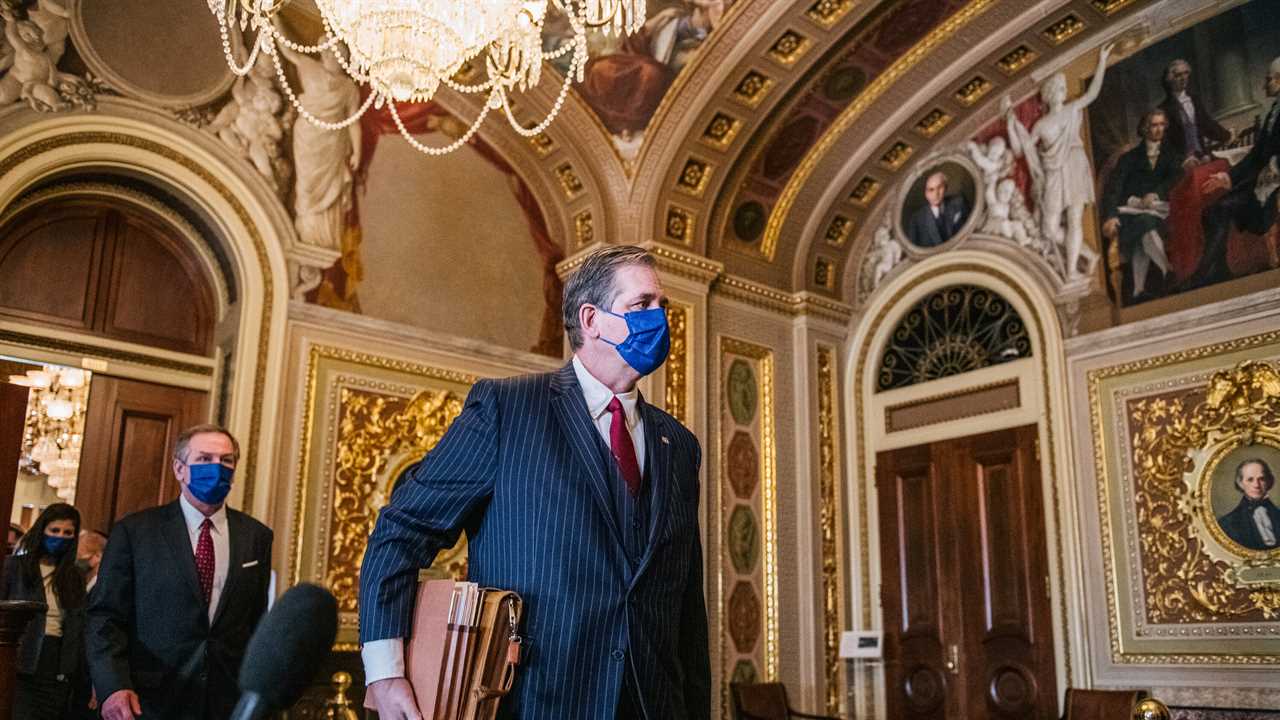
Last Wednesday afternoon, when former President Donald J. Trump’s legal team gathered in a conference room in a special suite at the Trump hotel in Washington, a longtime adviser to Mr. Trump, Justin Clark, had an announcement to make.
Mr. Clark told one of the lawyers, Bruce L. Castor Jr., that after his widely panned performance a day earlier, Mr. Trump did not want him appearing on television any more during the impeachment trial.
Mr. Castor rose from his chair, and began angrily shouting at Mr. Clark, arguing that Mr. Trump was wrong to demote him. The back and forth became so heated that Mr. Castor left the conference room in a huff.
He later apologized to Mr. Clark. But the tense exchange was just one example of how Mr. Trump’s hastily assembled legal team — a mash-up of political hands, a personal-injury lawyer, a former prosecutor and a longtime defense lawyer, most of whom did not particularly like or trust one another — clashed, stumbled and regrouped throughout the impeachment proceeding under the watchful and sometimes wrathful eye of its client.
The result was an airplane held together with duct tape as it tried to land.
This article is based on interviews with a half-dozen members of the legal team and others involved in the process, which ultimately led to Mr. Trump’s acquittal.
“You have to remember that we had literally one week and one day to prepare the defense and we were all people who never had met each other before,” one of the lawyers, David I. Schoen, said in a statement after he was approached for this article.
In the days after the House impeached Mr. Trump for his role in inciting the Jan. 6 riot, Mr. Trump and his aides tried to assemble a legal team. Several lawyers who had represented him in his past impeachment made clear they would not be involved this time. Other high-end white-collar defense lawyers were afraid to work for him because of the political backlash and fears that Mr. Trump would refuse to pay his legal bills.
Two weeks before the Senate trial was scheduled to begin, Mr. Trump announced he had hired a team led by Butch Bowers, a lawyer from South Carolina who had defended many of the state’s prominent politicians. Soon after, Mr. Schoen, who is based in Atlanta, was brought on to be, as Mr. Schoen said, “co-quarterbacks” with Mr. Bowers.
But Mr. Bowers and four other lawyers working for Mr. Trump abruptly parted ways with him about 10 days before the trial. Mr. Bowers and Mr. Trump had no chemistry, and some people familiar with the events said that Mr. Trump had wanted the team to push his false claims of a stolen election, something Mr. Bowers did not want to do. Mr. Schoen disputed that account, saying Mr. Trump never pressured him on the issue.
Nonetheless, the team suddenly needed more lawyers. Stephen R. Castor, the top Republican congressional lawyer who took on Democrats during Mr. Trump’s first impeachment, recommended his cousin, Bruce L. Castor Jr., a former prosecutor in Pennsylvania.






